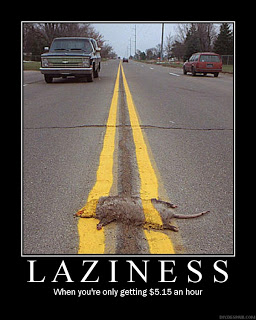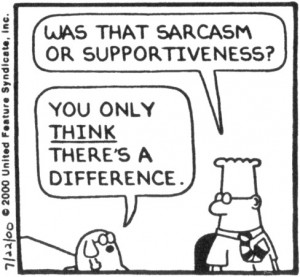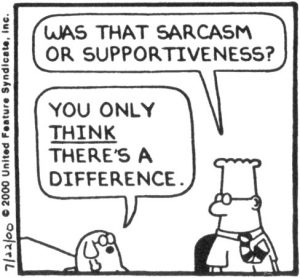The holidays quickly approaching, this is a very timely topic to deal with: the sarcasm, or sarcastic remarks of the people you meet: instead of holiday cheer, love etc. you need to deal with poison coming through sarcasm. How do you do it? This article will help to look at it differently and save yourself from grief.
Hey Sophie,
I hope you are well.
I’m wondering if you could help me to clarify something?
I’m trying to understand sarcasm.
The Irish people are generally quite sarcastic, it’s called ‘slagging’ here. I think, in general, one is supposed to be able to laugh at himself or answer back in similar manner.
But most of times I don’t really know how to react to it, it’s hurtful sometimes.. and I guess I don’t really know if I’m overreacting? Should I just observe the origin of MY hurt or try to see why perhaps the other person is veiling mockery, i.e. observe THEIR hurt?
It seems to me that there are different kinds of sarcasm, or I just don’t understand the definition of it.
I can give you the examples that got me wondering about this.
The other day I felt I was sort of ‘attacked’ 3 times within about 10 minutes. All those situations were concealed to be funny but I only either felt confused or hurt.
(to make sense you have to hear the things said in sarcastic tone)
- I called into see my in-laws to ask if they could mind my son for about an hour. My father-in-law was there and as we walked in he remarked ‘this is becoming your second home, is it?’. (In the last three weeks or so we’ve had 1-2 dinners a week there, every time invited.) I felt confused.
- I bumped into my brother-in-law and he went on a laughing rant about me being the scrooge, cheapskate, anti-spirit of christmas and so on, because for the second year in a row now I don’t want to take part in buying/receiving christmas presents between the adults. I think it’s for the kids. I guess I felt sort of embarrassed and hurt.
- I was talking to my hubby, saying I couldn’t find any hoover bags in the shop and an old acquaintance overheard me and commented ‘I didn’t know you hoovered’. I guess my house is dirty 😀 I felt a little annoyed.
 I was sort of left speechless in all of these situations and it left me feeling uneasy and wondering. I could, too, be easily sarcastic back but I don’t really want to because it feels like that I’m just being mean then. And if I don’t feel like laughing about it, should I just be quiet or straight confront them?
I was sort of left speechless in all of these situations and it left me feeling uneasy and wondering. I could, too, be easily sarcastic back but I don’t really want to because it feels like that I’m just being mean then. And if I don’t feel like laughing about it, should I just be quiet or straight confront them?
And I suppose this all comes to the fact that I’m really quite clueless how to interact with people. Where should I put my attention to? Observe my emotions, or theirs, or both?
I’m sorry for the long email. It’s just really boggling my mind today. It feels like the answer is right there but I don’t see it.
Thank you for taking your time to read this.
All the best,
name withheld for privacy (client from Ireland)
Wonderful question, thank you.
Let’s look at sarcasm first, and then we’ll look at how to take it, so it is useful, instead of hurtful… ok?
In my view, sarcasm is a sign that straight communication is not happening. Sometimes it is cultural: some cultures don’t do straight talk, and it seems Irish is like that. And other times it is a personal cowardice, the hallmark of Soul Correction 25… interestingly.
25 (Speak your mind) is a coward, and behaves cowardly. Straight talk requires courage, and straight talk requires a capacity that is one of the 13 capacities included in the DNA upgrade: responsibility.
When you do straight talk, you communicate your opinion to another person as your opinion, and you are willing to take the response, the wrath, or the grief… whatever is coming. So people who don’t have the capacity of responsibility resort to sarcasm: they can always say they were joking.
 It is always a lie: they NEVER joke, they mean it, and it is a communication. It is not straight, it is not constructive, it is not helpful, it is like a poisonous arrow “accidentally” sent your way to hurt.
It is always a lie: they NEVER joke, they mean it, and it is a communication. It is not straight, it is not constructive, it is not helpful, it is like a poisonous arrow “accidentally” sent your way to hurt.
So we can say: being sarcastic is being cowardly, unwilling to be responsible, unwilling to be helpful, unwilling to be constructive, and hurtful.
It is the sign of a cowardly, powerless, weak individual.
Now, let us look how someone who isn’t living on the pedestrian level takes a sarcastic remark:
- They accept it as a feedback. Which means they are willing to get the gist of the communication, and not the poison of it.
- They look at the communication as the point of view of the speaker or someone close to them.
 They look at what is true about the communication and take responsibility for that.Ultimately, for a person living above the pedestrian level sarcastic remarks are a valuable feedback to navigate in the world of people.
They look at what is true about the communication and take responsibility for that.Ultimately, for a person living above the pedestrian level sarcastic remarks are a valuable feedback to navigate in the world of people.
I know it is hard to be with not being welcome, and not being well thought of in your community, but it seems that is your reality right now. You have earned barely passing grades socially.
So what?
If you want to be widely loved and appreciated (a waste of time in my view) then start working on that.
If you just want to be happy and fulfilled, decide that other people’s opinion about you is their business…
 What is the difference between an opinion 1 and an assessment, an observation, a statement, a theory, a hypothesis?
What is the difference between an opinion 1 and an assessment, an observation, a statement, a theory, a hypothesis?





